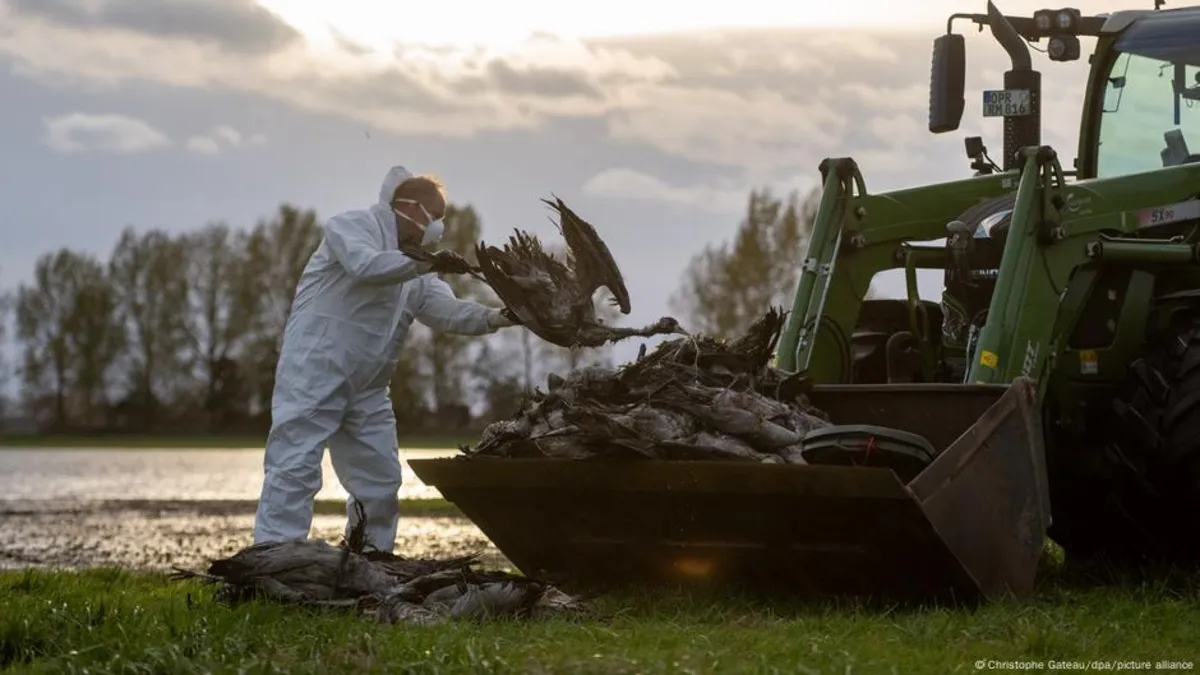
Since the beginning of September, over 500,000 hens, ducks, geese, and turkeys have been culled in Germany due to a virulent strain of bird flu sweeping across the nation. The Friedrich Loeffler Institute (FLI), the German government agency that monitors animal diseases, has reported 30 confirmed outbreaks in poultry batteries and another 73 among wild birds. A spokesperson for the institute informed the dpa news agency that authorities are investigating an additional 23 suspected cases, indicating that the situation may worsen.
The FLI notes that bird flu outbreaks typically emerge at the beginning of November, coinciding with the peak of the migratory season. This suggests that the current bird flu outbreak may still have more severe impacts ahead. In the south-western state of Rhineland-Palatinate, local officials report receiving new suspected cases daily and describe the situation as exhibiting an "unusual dynamic."
The most severely impacted regions are primarily in the northern and eastern states. Specifically, Lower Saxony has recorded 20 cases, followed by Thuringia and Brandenburg with 19 cases each, and Mecklenburg-West Pomerania with 14 cases. The southern state of Bavaria has reported eight cases, while North Rhine-Westphalia has five. Notably, cranes have been significantly affected, with emergency services in northern Brandenburg, just north of Berlin, tasked with disposing of thousands of infected carcasses found in the fields.
The outbreaks are attributed to the highly infectious H5N-1 strain of the HPAIV influenza virus, commonly recognized as bird flu. While the virus is theoretically transmissible to humans in high doses, the Robert Koch Institute (RKI), Germany's federal agency for disease control and prevention, has reported no known cases of human transmission.
The economic implications of the current bird flu outbreak are concerning, particularly regarding poultry prices. Robert Schmack, chairman of the Bavarian Poultry Union, has warned of a potential 40% increase in egg prices and a reduced selection of poultry products in supermarkets. However, Hans-Peter Goldknick, president of the Central German Poultry Union, disagrees, stating in an interview with public broadcaster ZDF that he does not anticipate significant price increases in the short term, especially leading up to Christmas, as most geese consumed in Germany are imported from Hungary and Poland.
To mitigate the spread of the bird flu virus, the FLI advises against contact with dead birds and recommends avoiding dirty boots near pens housing vulnerable animals. In the German parliament, a spokeswoman for the opposition Green Party highlighted that the current outbreak has exposed the vulnerabilities associated with factory farming, where densely packed conditions facilitate the rapid spread of the virus.
In summary, as Germany faces an ongoing battle against bird flu, it is crucial for both consumers and poultry producers to stay informed about the situation and take necessary precautions to protect public health and the poultry industry.